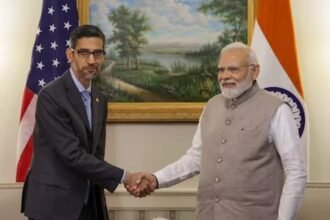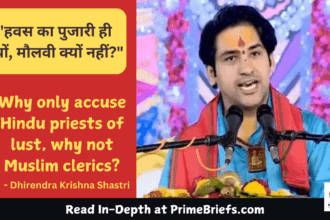Introduction
The ongoing Israeli-Palestinian conflict remains one of the most contested and emotionally charged issues in modern history. While the current crisis continues to escalate, various scholars and activists have sought to place it within a larger historical and political framework. One such perspective is provided by Ilan Pappe, an Israeli historian and the director of the European Centre for Palestine Studies at the University of Exeter. Pappe, known for his critical views on Zionism and Israeli policies, has described the current situation as the “moment of truth” for European colonialism in the Arab world. His assessment emphasizes the role of historical colonial practices and imperialistic ambitions in shaping today’s crisis, highlighting the ethical and political ramifications of these endeavors.
The Colonial Roots of the Conflict
Ilan Pappe has consistently argued that the Israeli-Palestinian conflict should be understood within the larger context of European colonialism in the Arab world. According to Pappe, the establishment of Israel in 1948 can be seen as a colonial project, largely supported by Western nations seeking to address their own historical challenges. Specifically, he suggests that European countries, grappling with the aftermath of the Holocaust and centuries of antisemitism, sought to “solve a European problem of racism” by supporting the creation of a Jewish state in Palestine—a region inhabited by its own native population.
Pappe contends that this solution amounted to imposing a European problem onto the Middle East, effectively initiating a colonial project that has led to significant suffering and displacement for the Palestinian people. By viewing the Israeli state’s creation through the lens of settler colonialism, Pappe draws comparisons between the historical colonization of North America and Australia and the Zionist movement in Palestine. These parallels emphasize the perceived intention to displace indigenous populations in favor of settlers, further deepening the political and humanitarian crises.
Western Support and Its Consequences
Another key aspect of Pappe’s analysis is the role of Western support in sustaining the Israeli occupation. He argues that Israel has been able to maintain its policies in the Palestinian territories due, in large part, to unwavering Western backing—both diplomatically and militarily. The support is often justified using narratives of “self-defense” or “the war on terror,” which, according to Pappe, have allowed Israel to expand settlements and continue the occupation of Palestinian lands with little to no repercussions.
Pappe highlights how this support is intrinsically linked to the larger Western project of maintaining influence in the Middle East. This influence is vital for ensuring access to resources, notably oil, and maintaining geopolitical control over the region. By supporting Israel, Western nations have not only entrenched the Israeli-Palestinian conflict but have also fueled anti-Western sentiment throughout the Arab world, leading to a cycle of instability and resistance.
The "Moment of Truth" for European Colonialism
Ilan Pappe’s use of the phrase “moment of truth” refers to the current period in which the consequences of these historical colonial and imperial endeavors are becoming undeniably clear. The ongoing violence in Gaza, the displacement of Palestinians, and the rising casualties on both sides are reminders of the failure to resolve the root causes of the conflict. According to Pappe, the notion that peace can be achieved without addressing the colonial foundations of the Israeli state is fundamentally flawed.
The historian argues that just as other colonial projects ultimately faced resistance and demands for justice—from Algeria’s war for independence to the anti-apartheid movement in South Africa—the Israeli-Palestinian conflict will also need to confront its colonial underpinnings. Pappe believes that without recognizing and rectifying the injustices inflicted upon the Palestinian people, a lasting resolution will remain elusive.
Comparing Historical Settler Colonialisms
In his analysis, Pappe draws a parallel between historical settler colonialism and the Zionist movement in Palestine. He compares Israel’s policies towards Palestinians with the treatment of indigenous populations in North America and Australia during the colonial era. In these instances, settler colonialism involved the displacement and, in many cases, eradication of indigenous communities to make way for settlers.
According to Pappe, Israel’s actions in Gaza, including settlement expansions and military operations, echo this history. He points out that the frequent bombings, land appropriations, and displacement of Palestinian communities reflect a broader strategy of control and elimination. The ongoing blockade of Gaza, which has resulted in dire humanitarian conditions, is viewed by Pappe as part of a long-term plan to make Palestinian territories unlivable and force the population into submission or exile.
The Role of Resistance and International Solidarity
While Pappe paints a bleak picture of the conflict, he also emphasizes the role of resistance and international solidarity in challenging the status quo. He points to the growing global movement for Palestinian rights, which includes boycott, divestment, and sanctions (BDS) campaigns aimed at pressuring Israel to comply with international law. Pappe views these movements as a crucial part of the struggle against what he sees as a colonial project.
He also highlights the importance of education and raising awareness about the historical context of the conflict. By framing the Israeli-Palestinian conflict as a continuation of European colonialism in the Arab world, Pappe hopes to shift public opinion and galvanize support for Palestinian self-determination. He calls on Western nations to reflect on their historical roles and take responsibility for their contributions to the current crisis.
Implications for the Middle East
The implications of Pappe’s perspective on European colonialism in the Arab world extend beyond Israel and Palestine. The continued instability in the region, from Lebanon to Syria and Iraq, can be traced back, in part, to the legacy of colonial borders and foreign interventions. Pappe argues that the same powers that once drew arbitrary lines across the Middle East are now supporting policies that perpetuate conflict and division.
He warns that without a fundamental shift in approach—one that prioritizes justice and equality over strategic interests—the cycle of violence will continue. For Pappe, the “moment of truth” means acknowledging the colonial roots of the Israeli state and addressing the legitimate grievances of the Palestinian people as a prerequisite for peace. He sees the growing solidarity movement as a sign of hope, but insists that meaningful change will require a complete rethinking of Western policies in the region.
Conclusion
Ilan Pappe’s perspective on the Israeli-Palestinian conflict provides a critical lens through which to understand the broader historical and political forces at play. By framing the conflict as a continuation of European colonialism in the Arab world, Pappe highlights the need to address the root causes of violence and displacement. He challenges Western nations to reconsider their roles and responsibilities, arguing that true peace can only be achieved by dismantling the structures of oppression that have been in place for decades.
As the situation in the Middle East grows increasingly dire, Pappe’s call for a reckoning with the past and a commitment to justice serves as a reminder that lasting peace requires more than just ceasefires and diplomatic negotiations. It requires a fundamental shift in how we understand and address the historical injustices that continue to shape the present. Only by confronting these truths can we hope to pave the way for a just and equitable future for all people in the region.







